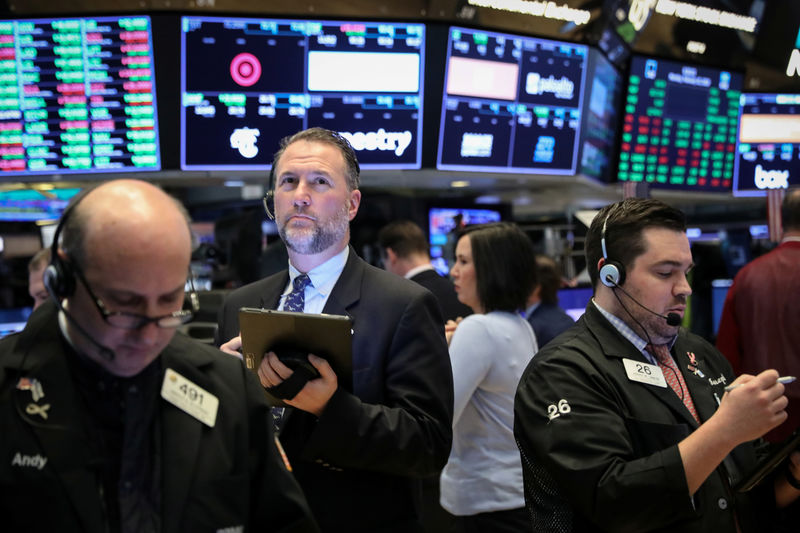Investing.com -- It's jobs day in the U.S. and the Bureau of Labor Statistics is set to tell us how the labor market held up under the strain of increased trade tensions with China last month. Further afield, sterling is retreating as Boris Johnson gets a boost from a court ruling upholding his suspension of parliament, while Iran stopped observing the conditions of the UN-backed nuclear deal.
- Jobs, Jobs, Jobs
The U.S. labor market report for August will overshadow everything else this Friday, either giving substance to or dashing hopes that the U.S. economy is holding up under the strains of an ever-wider trade war.
The figures are due out at 8:30 AM ET (1230 GMT). Forecasts that the number of non-farm jobs added would slow to 164,000 from 193,000 in July were made to look conservative on Thursday, when ADP released figures showing a gain of 195,000 jobs last month.
The other key numbers to watch for include average hourly earnings growth, which is expected to moderate to 3.1% from 3.2% last month, and average weekly hours worked, which fell to a two-year low of 34.3 in last month’s report.
- Stocks set to open higher
U.S. stock markets are indicated to open higher, with the major indexes showing gains of between 0.1% and 0.2% as of 6 AM.
The latest leg-up has been helped by news that China's central bank again loosened its monetary policy by cutting reserve requirements for banks by an aggregate of 900 billion yuan ($128 billion), another illustration of a global easing trend that many expect to see confirmed by the Federal Reserve and European Central Bank this month.
Risk appetite returned to markets in style on Thursday after the ADP (NASDAQ:ADP) report and ISM’s survey of non-manufacturing businesses. European markets paused for thought Friday morning after another drop in German industrial production suggested a real improvement in the hard data is still not in sight.
Yoga-wear maker Lululemon (NASDAQ:LULU) will be in the spotlight, after reporting second-quarter results well ahead of expectations after the bell. Another stock potentially moving could be Alibaba (NYSE:BABA), after it announced the $2 billion acquisition of another Chinese-based e-commerce company.
- Havens still under pressure after Thursday correction
The sharp reversal in markets on Thursday hit overextended haven assets badly, and they aren’t looking in any mood to recover yet. Gold futures hit a two-week low of $1,511.25 a troy ounce in European trading, while the 30-year Treasury yield rose to a two-week high of 2.09%.
The front end of the yield curve has stayed stubbornly flat, however, with two-year yields rising to 1.56% as traders scaled back expectations for further interest rate cuts from the Federal Reserve beyond the one expected later this month.
- Sterling slides after court says suspension of parliament was lawful
Sterling is in retreat after a three-day rally in which it gained over 2% against the dollar. Profit-taking has been triggered by a ruling from the High Court that Prime Minister Boris Johnson’s suspension of parliament was lawful.
Johnson's plans to take the U.K. out of the EU come what may on Oct. 31 still face considerable political opposition, given that a bill requiring him to ask the EU for a three-month extension of the Brexit deadline is due to receive royal assent and pass into law on Monday.
- Oil steadies after inventories data, Gulf news
Crude oil prices have come off the highs they posted on Thursday after government data confirmed an unexpectedly large drop in crude inventories last week.
There was an overnight uptick in geopolitical risk premiums as Iran announced it no longer felt itself bound by the UN-backed accord which had already been abandoned by U.S. President Donald Trump.
That paves the way for the Islamic Republic to resume enrichment of nuclear fuel, which may in turn lead to further action from the U.S. to stop what it sees as Iran’s attempts to build a nuclear bomb.
On the downside, Platts reported that Iraq’s crude production hit a new record of some 4.88 million barrels a day in August, putting fresh strains on the OPEC+ output cut deal. Russia, meanwhile, has a budget that balances at an oil price below $50 a barrel, allowing President Vladimir Putin to be more relaxed about the deal falling apart. WTI futures were at $56.24 a barrel, down 0.2%, while Brent was down 0.1% at $60.87.
